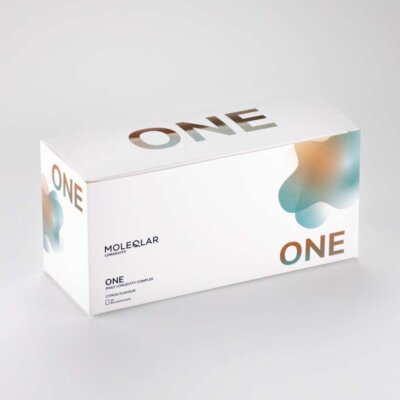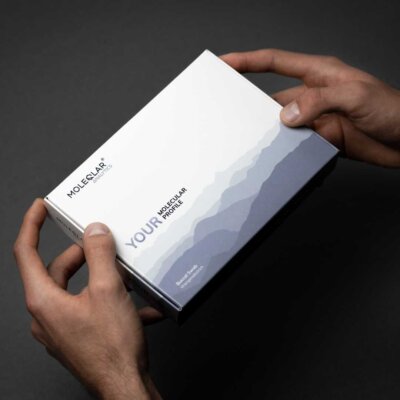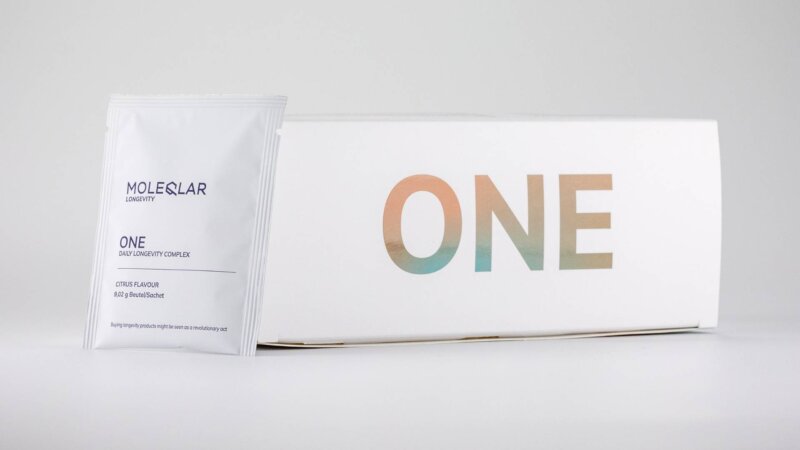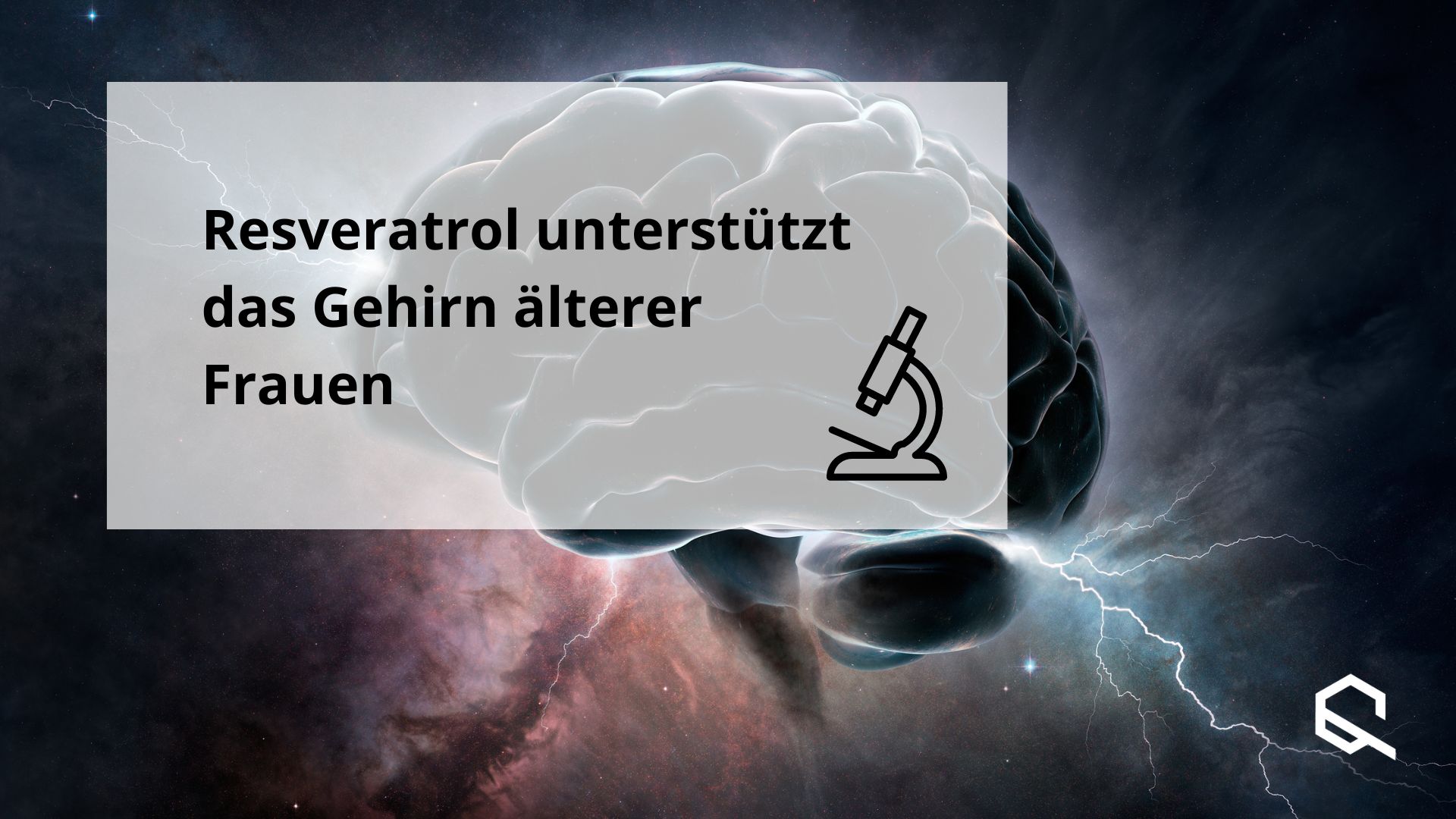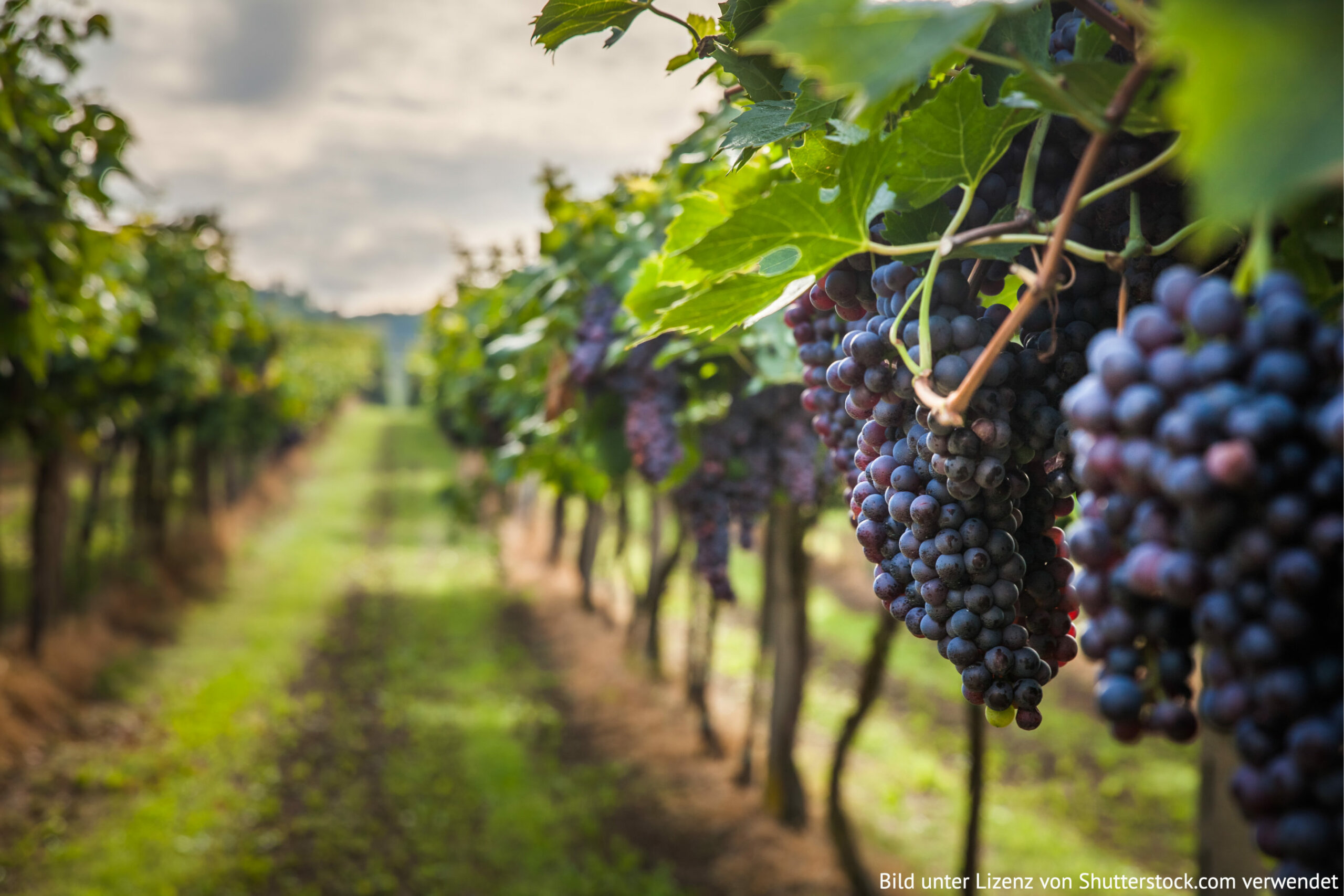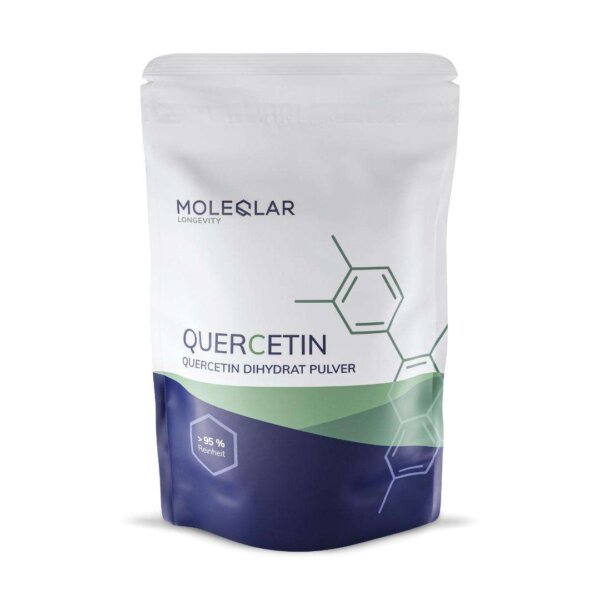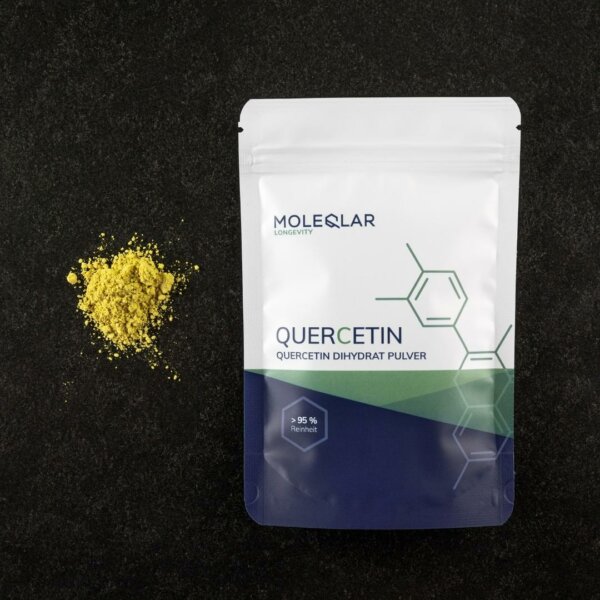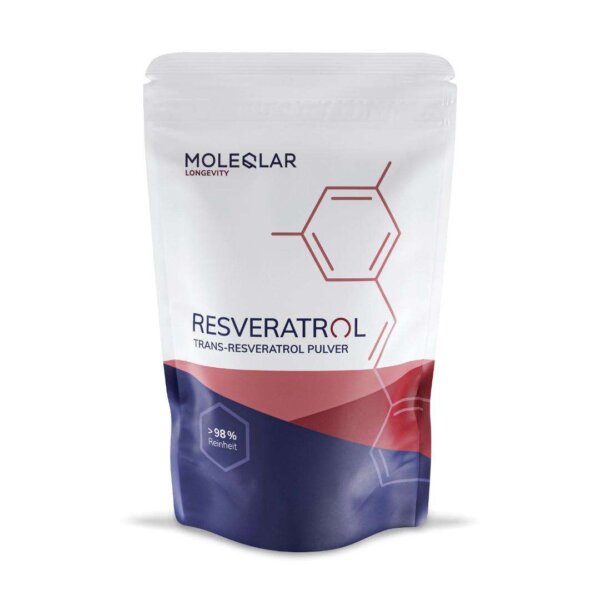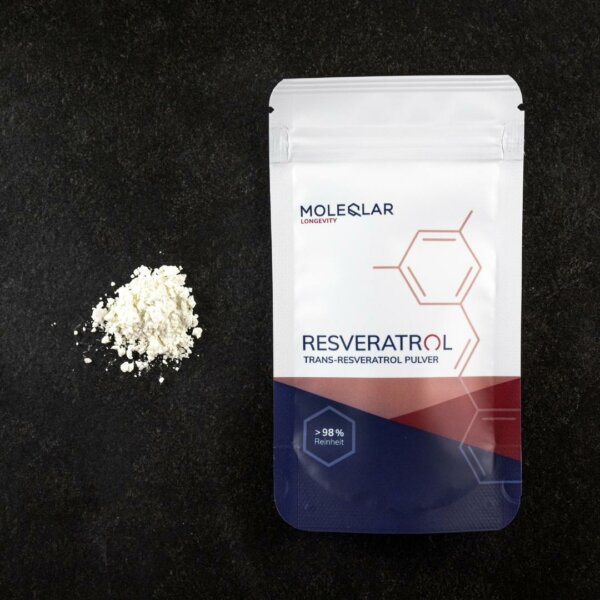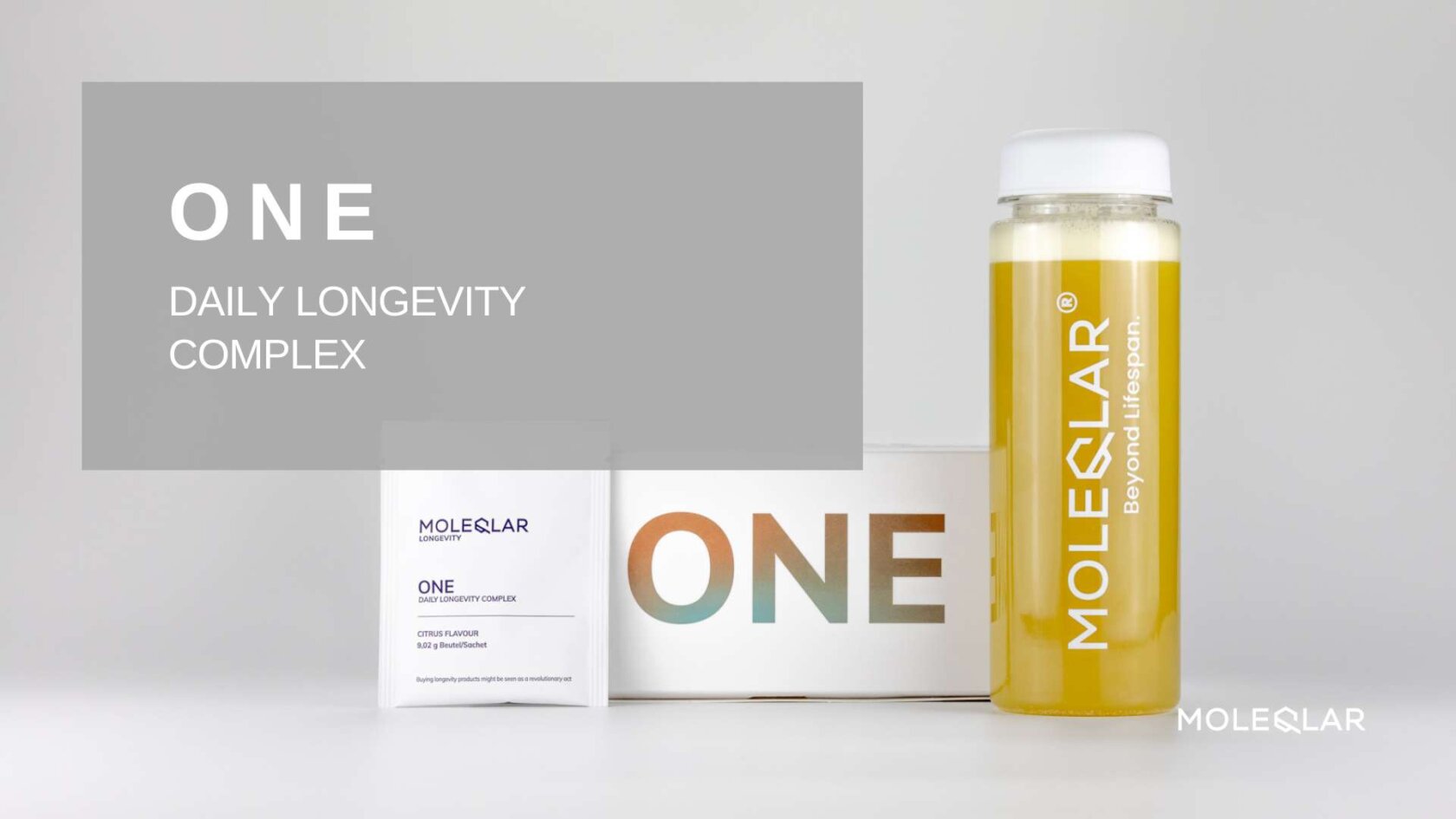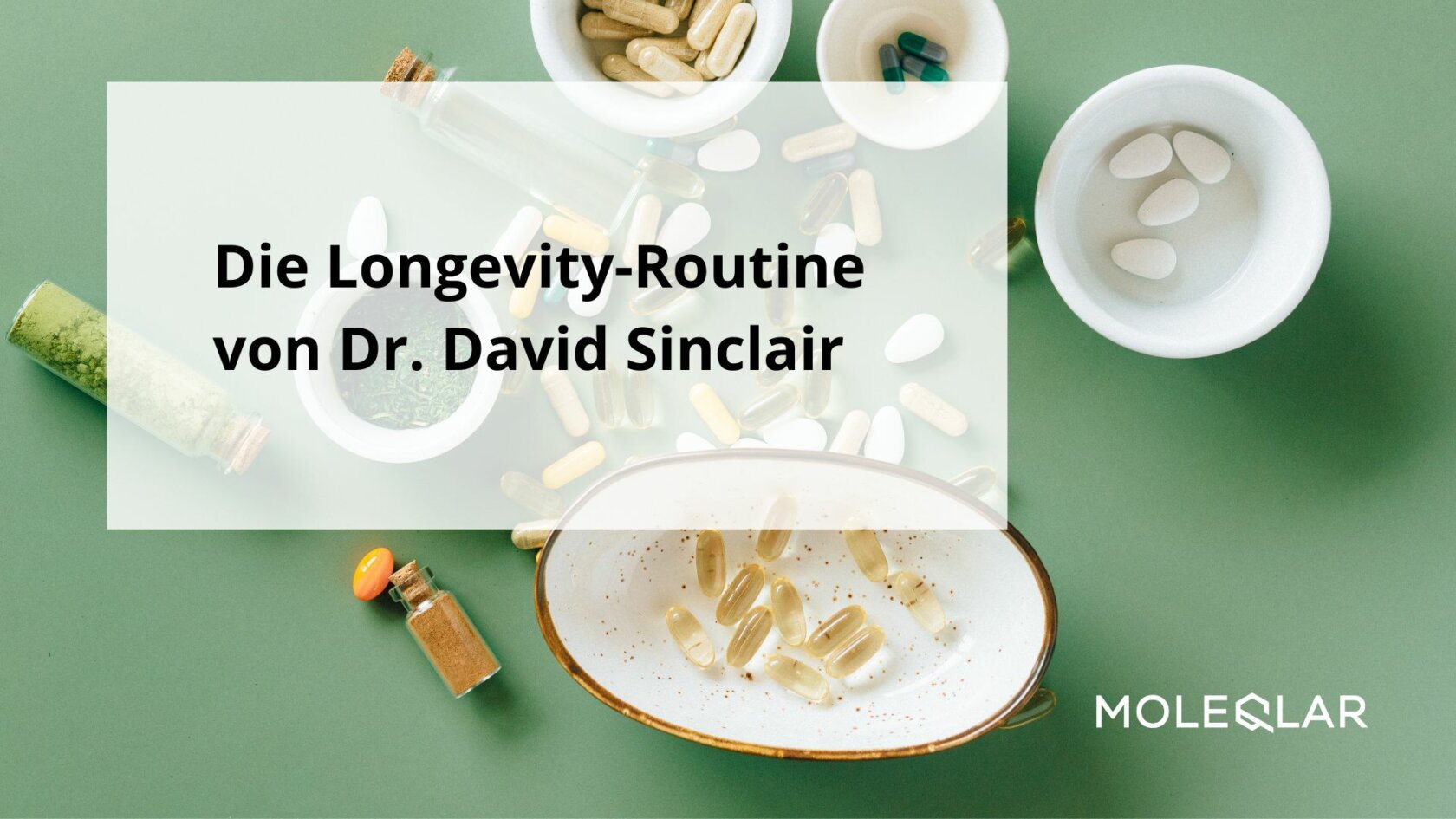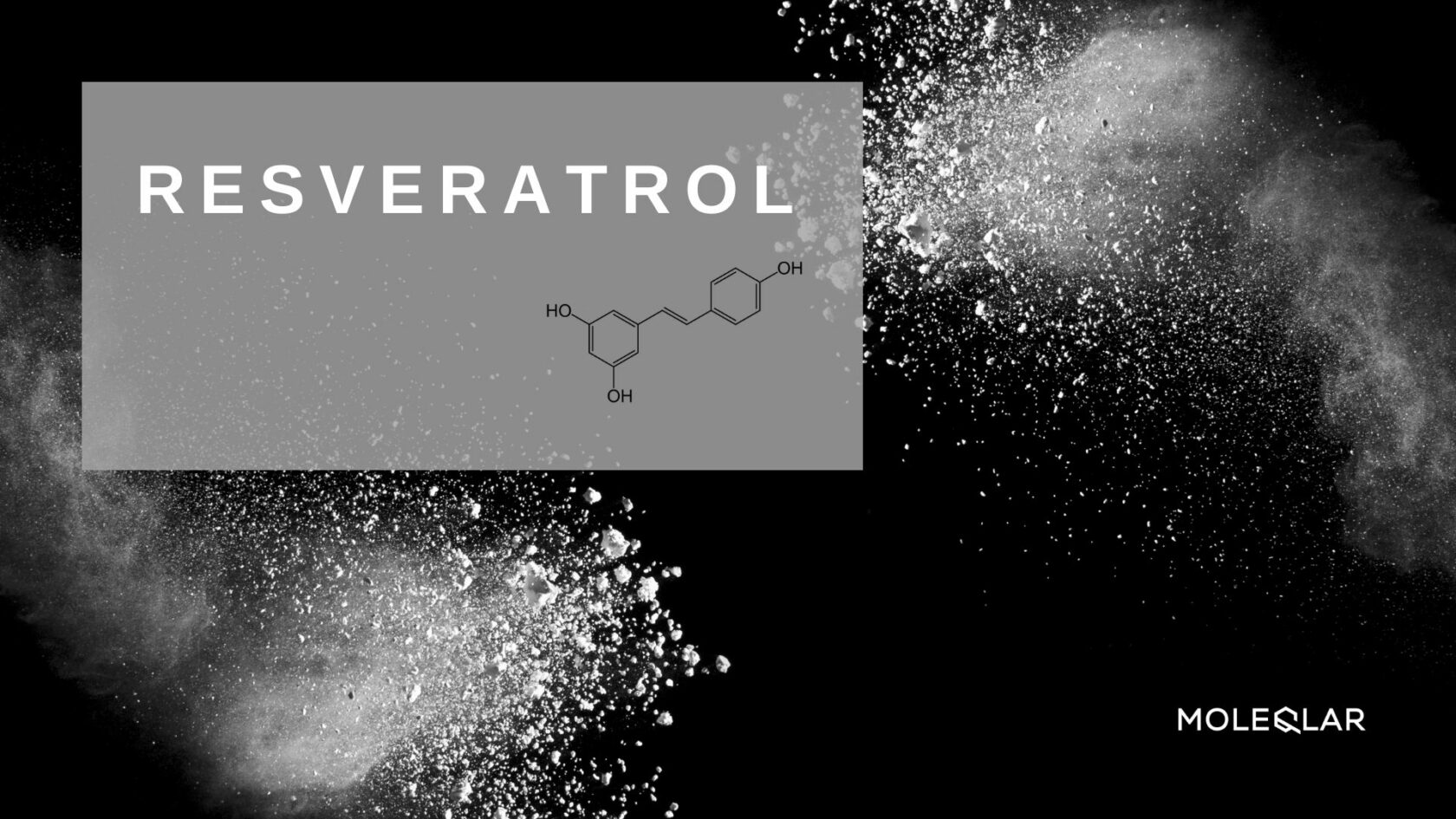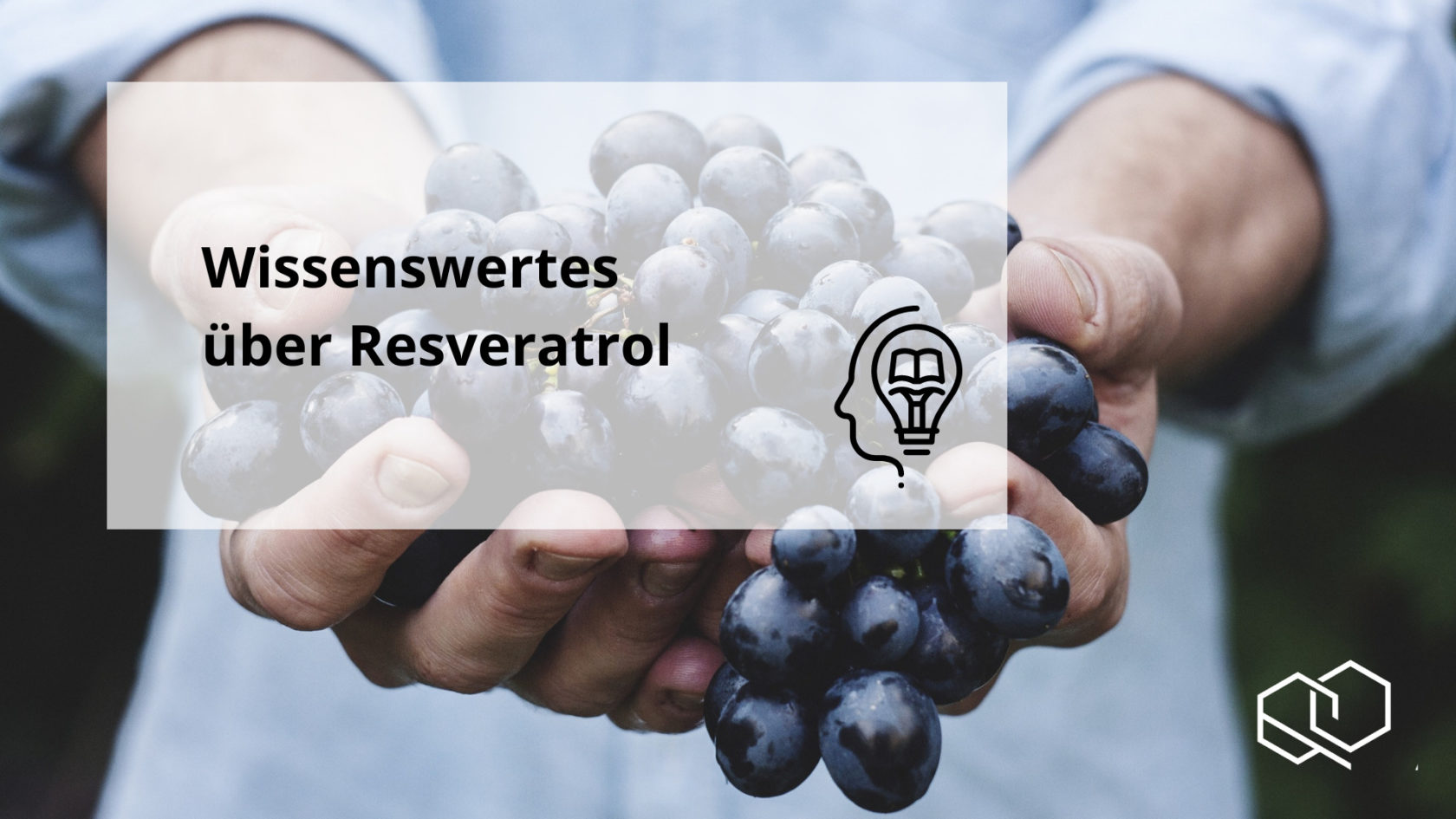Dementia and diseases affecting the cerebral vessels are among the main causes of death among older women, along with cardiovascular diseases. The risk of dying from these diseases is greater for older women than for younger women or men. This fact is partly due to the decline in oestrogen levels after menopause. Oestrogen has many important functions in the body, such as memory maintenance or bone health. Because oestrogen decreases after menopause, there are impairments in these areas. In addition, the loss has a negative effect on microcirculation, causing vessels to become stiff more quickly. This reduced adaptability of the arteries to the oxygen demands of the brain is associated with impaired cognitive performance. Based on these processes, resveratrol was investigated in the RESHAW study.
" You don't know what resveratrol is? Here you can learn everything about the exciting longevity molecule.
RESHAW study: Resveratrol to support healthy ageing in women: Long-term effects of resveratrol on cognitive performance, cerebrovascular function and cardio-metabolic markers in postmenopausal women.
In the RESHAW study, Zaw et al. investigated the long-term effects of Veri-teTM resveratrol (Evolva SA, Switzerland) on ageing processes in post-menopausal women. The study is a randomised controlled trial and thus the highest level of scientific evidence.
Curriculum
125 postmenopausal women aged 45-85 years took either 2 x 75mg trans-resveratrol daily (morning and evening) or a placebo for a period of twelve months. The allocation to the respective group was done randomly (randomisation). After this time, the administration was switched for another twelve months. This means that a woman who received resveratrol in the first year only received a placebo in the second year. However, at no time did the individual study participants know whether they were now receiving resveratrol or the placebo. In science, this practice of blinding is common and a sign of the quality of a study. The total observation period was 24 months. To be considered postmenopausal, the last menstrual period had to be at least twelve months ago.
After 12 and 24 months, one examination was carried out in each case, during which data was collected. At the end of the study, the participating women were then compared "with themselves" to determine any differences. In concrete terms, this means that the data of a woman after 12 months of resveratrol intake were compared with the values after 12 months of placebo. This so-called "crossover" design is also scientific practice in action. The authors examined the following parameters:
- cognitive performance
- cerebral blood flow velocity and cerebral vascular responsiveness
- various cardio-metabolic markers
Results
The authors measured cognitive performance using various neuropsychological tests. Participating women completed the test battery at the beginning of the study, after the first twelve months and at the end of the study after two years. Overall, women taking resveratrol showed a 33% improvement in overall cognitive performance. In individual subtests, the jump was even greater. For example, the increase in a test concerning working memory was 208% (Forward Spatial Span Test).
The second outcome criteria were cerebral blood flow velocity and the responsiveness of the brain vessels, which the researchers measured using ultrasound. Here, the resveratrol group showed an 8% improvement in mean blood flow velocity. In addition, a 12% improvement in the reactivity of the brain vessels to an excess of CO2 was demonstrated. Overall, the observed increase in neurovascular coupling was 7% with resveratrol versus placebo. This means that more blood is transported to places where there is increased neuronal activity.
Finally, the authors were interested in various cardio-metabolic markers. More precisely, these include systolic and diastolic blood pressure, fasting blood glucose, insulin and blood lipids (cholesterol, HDL, LDL). Here, a 9% reduction in fasting insulin was found with no change in fasting glucose, indicating improved insulin sensitivity. There were no significant differences in blood pressure or blood lipids.
Summary
For mental performance, resveratrol thus showed a significant improvement in all cognitive domains examined by the researchers. The size of the observed effect was comparatively small. In this context, the authors state that age studies have shown that certain cognitive areas decrease by an annual rate (0.02 standard deviations). Due to this fact, the improvement measured in the study is nevertheless clinically significant because resveratrol is able to slow down this process. In addition, there was evidence that resveratrol can sensitise the cells to insulin and thus potentially slow down the development of type 2 diabetes mellitus.
The dose of 2 x 75mg resveratrol per day used in the study cannot be absorbed in this order of magnitude through a balanced diet. The highest concentration was found in grape skins with values of 50 to 400 micrograms (!) per gram of grape skin. For red wine, values between 0.1 and 14 mg / L result, depending on the grape varieties used. The dose of resveratrol administered in the study is accordingly equivalent to three to 27 litres of red wine or about 50kg of grape skins - daily! This is probably not such a good idea.
The authors conclude by highlighting that 88% of the women who participated in the study said they were likely to continue resveratrol supplementation after the study.
Read more about the antioxidant effects of resveratrol here: Antioxidants and the relationship police
Zaw, Jay Jay Thaung, Peter RC Howe, and Rachel HX Wong. "Long-term effects of resveratrol on cognition, cerebrovascular function and cardio-metabolic markers in postmenopausal women: a 24-month randomized, double-blind, placebo-controlled, crossover study." Clinical Nutrition 40.3 (2021): 820-829.
